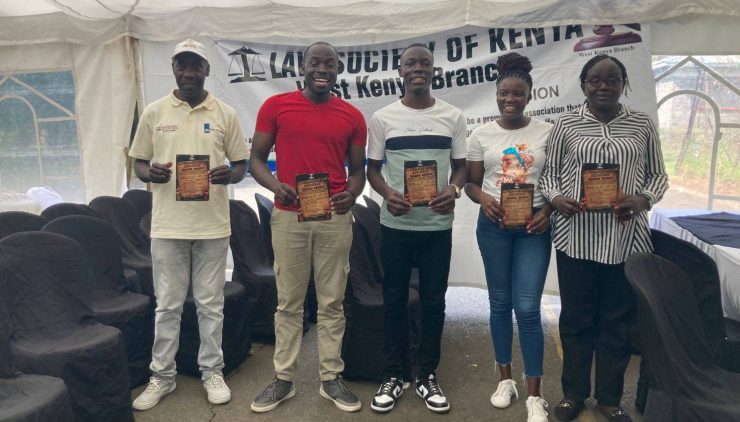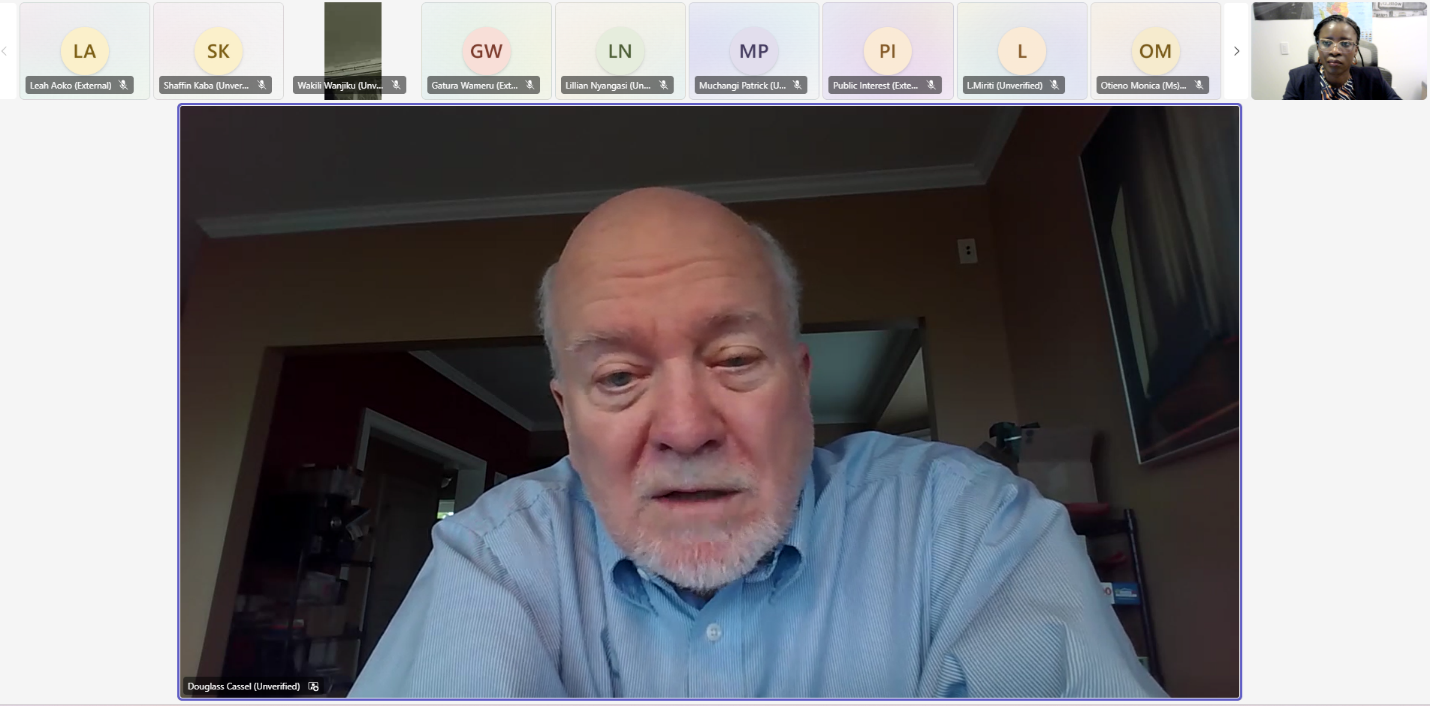This website uses cookies so that we can provide you with the best user experience possible. Cookie information is stored in your browser and performs functions such as recognising you when you return to our website and helping our team to understand which sections of the website you find most interesting and useful.
Vance Center Supports Law Society of Kenya Initiative to Document Human Rights Violations
May 2025The Vance Center joined partner organizations in Kenya to offer a two-day training on practical human rights documentation methods for 60 participants.

Participants at one of the LSK’s Justice Centers. After completing the training sessions, including the one led by the Vance Center, the trained advocates, rapporteurs, and paralegals were stationed at various court stations and justice centers to apply their knowledge to documenting cases of human rights violations, May 7-9, 2025. Photo credit: Law Society of Kenya
The Vance Center and partner organizations in Kenya provided an in-depth two-day training session that instructed 60 advocates, rapporteurs, and paralegals deployed by the Law Society of Kenya (LSK) on methods to document human rights violations that arose from national protests last year.
The training furthers the LSK’s efforts to catalog human rights violations committed across Kenya in the wake of the Finance Bill Protests, a youth-led protest movement against a package of proposed tax increases in 2024.
In the aftermath, the LSK launched a landmark initiative to establish eight Justice Centers nationwide to comprehensively and systematically document human rights violations related to the protests and the government crackdown.
The training kicked off on May 5, 2025, with senior legal practitioners from Kenya presenting on topics including the ethics of engaging with victims of torture and collecting evidence in cases of torture, with a specific focus on collecting medical evidence and safe methods for storing evidence.
On the second day, Douglas Cassel, a Vance Center Committee member and counsel at King & Spalding, presented a session on the relationship between investigators and victims or witnesses of human rights violations. His presentation covered practical examples from across the globe and requirements for international legal action to move forward.
Drawing on examples from his career and cases in countries including Guatemala, El Salvador, and Rwanda, he offered insights on possible risks that can arise within this dynamic. Some of the issues he raised included communication between lawyers and non-educated individuals, confidentiality around documenting cases, and security concerns.

Douglass Cassel presents to participants in the Law Society of Kenya training session on May 6, 2025.
Shifting to the international legal system, he addressed the rule of exhaustion of domestic remedies as a guide to filing a case and formulating legal arguments. Cassel explained the relevant regional and international legal mechanisms that individuals working with the LSK can pursue in African regional courts or internationally and outlined the considerations that legal representatives should consider in approaching a court regarding human rights violations. He emphasized the need to gather clear information on the timing of human rights violations and any prior proceedings that occurred before the local or national police, courts, human rights commission or other similar bodies, or any executive offices that could take action related to the case.
Following Cassel’s session, Vance Center Africa Program Director Adaobi Egboka presented the work of the Vance Center. She highlighted the diverse avenues and examples of legal support that the Vance Center could provide to the Law Society of Kenya and its teams if they choose to move forward at the international level with any cases identified through the Justice Centers.
The session, which also has support from the Open Society Foundations, built on the Vance Center’s efforts to support the LSK in its initiative to document and pursue justice for the violations committed during the 2024 protests.
The anti-Finance Bill demonstrations, popularly called the “Gen Z Protests,” were led by young Kenyans who organized through social media platforms like TikTok and X. The protests began to oppose new legislation that would increase taxes but evolved to express a broader range of frustrations with economic conditions in Kenya. Kenyan security forces responded to the demonstrations with excessive force. Many protesters were injured, and other activists were subjected to arbitrary arrests, abductions, and enforced disappearances.
LSK’s documentation efforts through the Justice Centers is a direct response to significant public concern about the rule of law and human rights in Kenya. Kenyan security forces have a notorious history of excessive and violent responses to demonstrations, with documented cases of using lethal ammunition on protesters and tear-gassing hundreds of children.
Through this first-of-its kind effort, the LSK hopes to create a centralized, evidence-driven legal repository of violations, including cases of excessive force, arbitrary arrests, unlawful killings, torture, and others. The information collected through the Justice Centers initiative will provide robust, reliable evidence that will help LSK strengthen its strategic litigation efforts, propose legal and institutional reforms in the justice system, and support national and international advocacy through data-driven reporting.
The Vance Center also provided information and resources to support the LSK in developing its documentation guide and questions that practitioners will use in their interviews.


